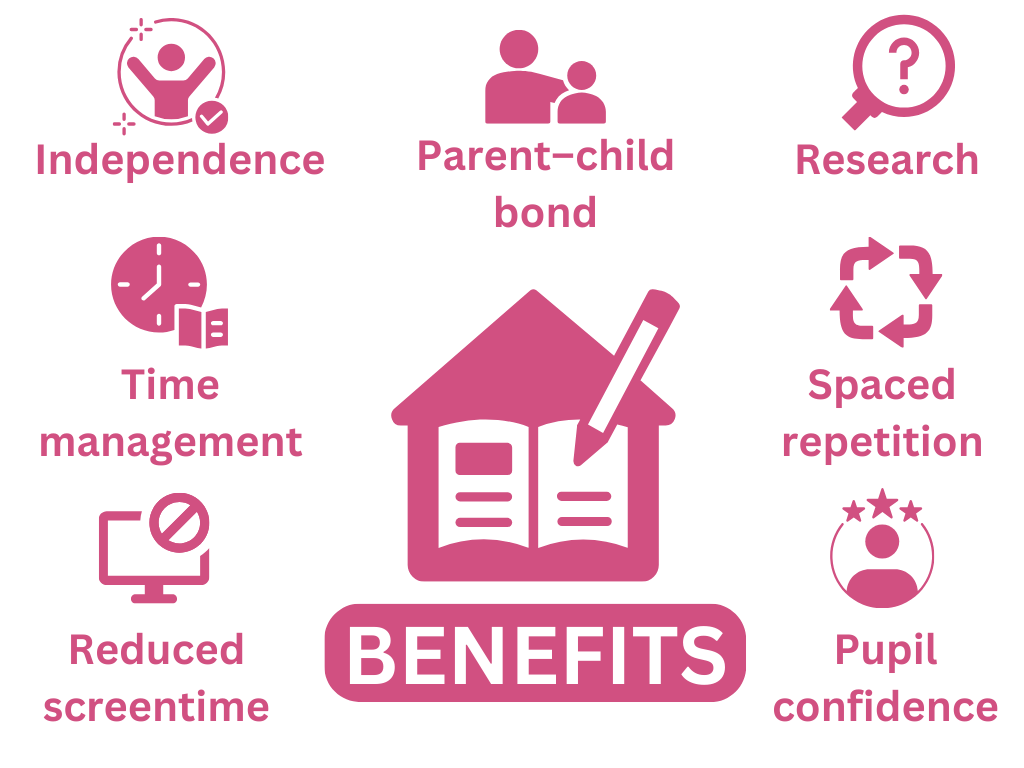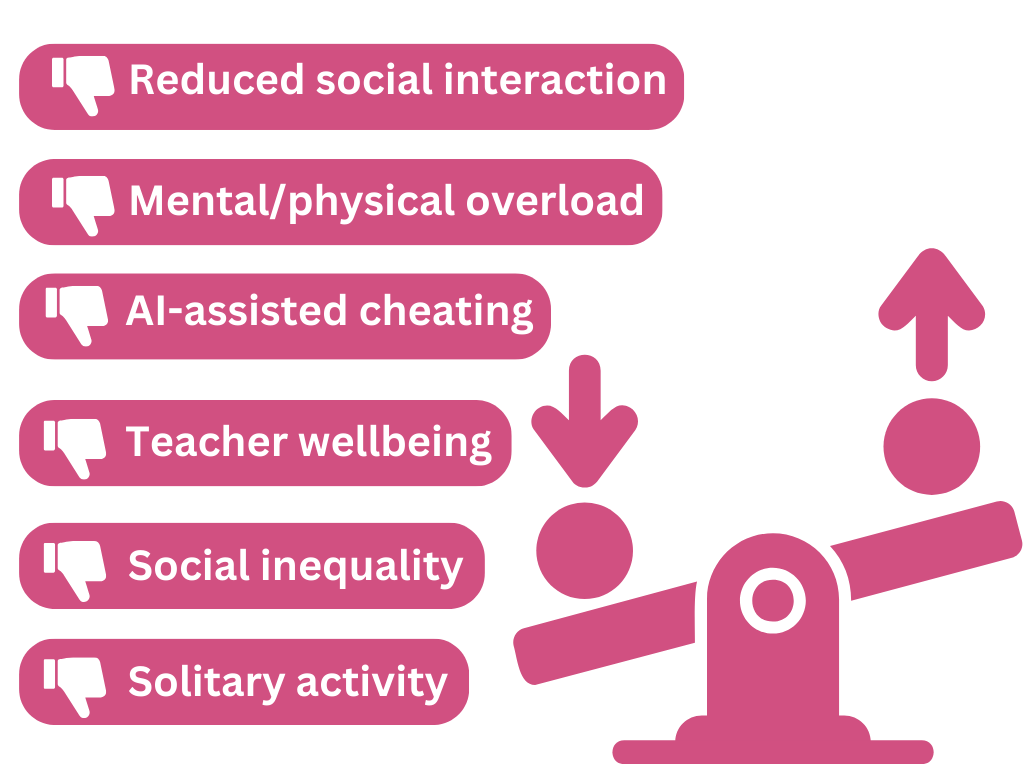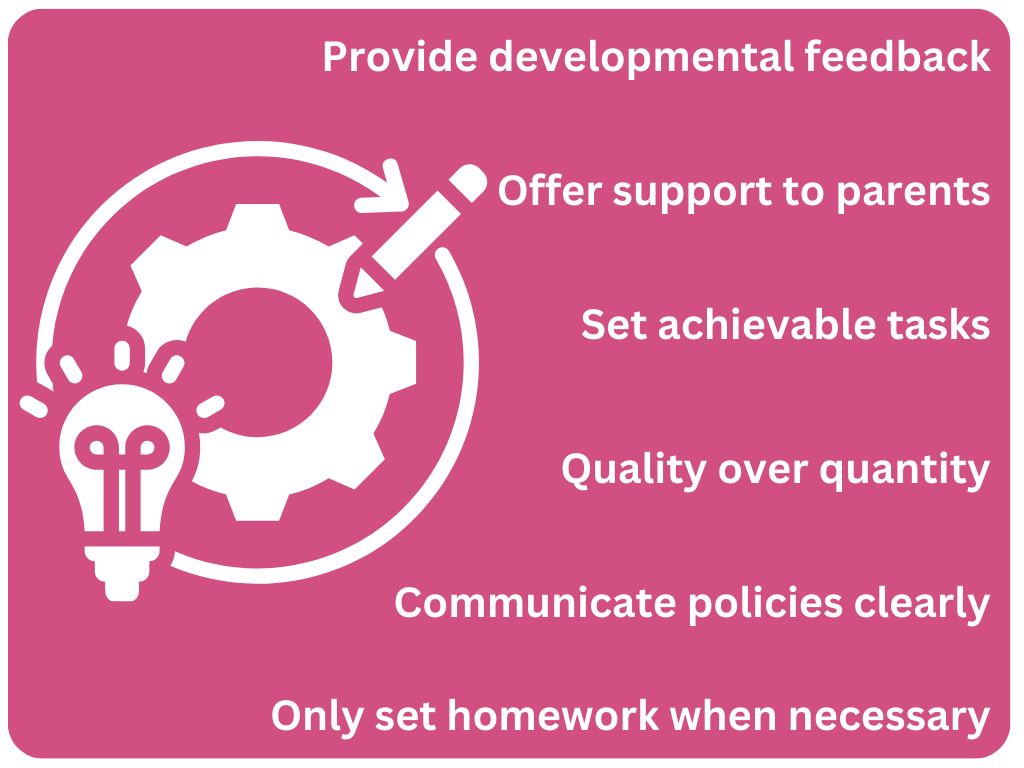Tom Fay delves into the polarising realm of homework in education. The debate weighs the benefits against potential pitfalls, exploring issues such as student overload, social inequality and technology's evolving impact on learning.

The conversation about homework is one of the most polarising in education. While schools throughout the country strive for the elusive 'homework Goldilocks zone', there are too many variables to control to find the best fit. To compound the issue further, there is little data to support how much is right or more to the point, how much has a tangible impact.
A 'no homework' policy pleases few parents. For others, recording a child's reading record once a week in primary schools can be a struggle due to their working life. With the country still feeling the effects of the COVID pandemic, people think differently about children's wellbeing and mental health. This has a perceptual impact on what children should do once they get home from school; for some, that should be socialising with family members or friends and certainly not doing more hours of schoolwork!
Homework can play a positive role in making essential subject information 'stick'. You can also use it as a tool to develop subject mastery and a love of a specific subject if the teacher 'sells' it correctly.

Evidence suggests that homework is most effective when it is an integral part of learning rather than a bolt-on. To maximise impact, it is important that pupils receive high-quality feedback on their work. Pupils of all ages must see that their efforts in completing homework outside of school hours are matched by the teacher's effort in marking it and providing developmental feedback. This will add to the credibility of having to do extra work in the first place (Songsirisak and Jitpranee, 2019).
Moreover, there is an argument to suggest that not all pupils need homework or certainly not to the same extent. For example, what use is homework that reinforces content already assimilated in the long-term memory of a pupil? Surely, in classrooms with pupils at different stages of learning, we need to consider how activities out of school support the consolidatory and mastery process at an individual/group level.
Recent research from the Education Endowment Foundation (EEF) suggests homework positively impacts pupil progress by an average of +5 months. However, the impact is slightly less in primary settings and there are still many uncontrollable variables to consider.
Homework develops other skills associated with learning like time management, research, independence, spaced repetition and pupil confidence. In some cases, it also reduces unnecessary 'screen time' and can foster more productive parent–child relationships. Finally, a school's homework policy tells parents and external stakeholders a little more about the culture and expectations of a school. We will touch upon this later.
Pupils already spend six to eight hours in school, five days a week. This raises the question of how productive pupils (especially younger pupils) will be when they get home from school. Are we doing everything we can to prevent physical and mental overload?

Homework activities will certainly interfere with social interaction and can, at worst, widen social inequality. Homework can often be a solitary activity that prevents pupils from taking up hobbies or exercising outside. We must also consider the evolution of AI and the use of digital technology that can lead to cheating. This, of course, is only applicable to pupils with access to digital technology.
I am also conscious of teacher wellbeing and workload. Nothing will ruin a teacher's evening or a weekend more than marking unnecessary tasks at excessive volumes. This is one of the reasons why teacher feedback is often generic, of poor quality and provides little to no clear direction for further pupil development. This problem is exacerbated for the weakest pupils and those who struggle to read!
So how do you turn policies about homework into something meaningful for all?
Homework policies and practices send messages to external stakeholders about what value schools place on different curriculum areas. Remember, parents will have their own views and experiences with homework. Do not expect them to read policies. They need to know the whats, whys and whens of homework clearly and succinctly through school communication channels.
The same applies to pupils. The 'why' is important here. Pupils need contextualised homework and wherever possible, it should be enjoyable. Communication with parents/carers needs to be at least annually. The start of the academic year is a good time to reset expectations and to explain how homework plays a role in learning.
Do not underestimate a parental lack of confidence when supporting children in completing homework. Offer support where necessary. In the schools that form part of my Trust, an increasing number of pupils attend homework clubs, where they can work with their peers and adults to complete activities. Parents appreciate this, not only for the expertise we can provide, but it allows parents to not have to focus on a pupil's homework when they get in after a busy day of work. Instead, they can use this time for social activities.
We also offer parental workshops for those who want to support our early reading strategies and/or other areas of the curriculum. Remember, pupils do not always have to complete homework at home. Parental involvement sends a clear message to the pupil about the importance of these activities and further fosters positive home–school relationships.

The time needed to consolidate learning outside of the classroom is pupil-dependent. There is no one-size-fits-all (Fan et al. 2022). However, there needs to be a carefully considered minimum and maximum. If pupils spend excessive hours completing homework tasks, what does that say about our quality of education and pedagogy? Support pupils with their time management and provide tasks that are achievable to support key learning.
Share your part in the process. Let pupils know that you take their homework seriously. Provide them with developmental feedback that is easy to implement so you can check progress over time. Make sure the consequences of not doing homework are fair and consistently applied. Listen to the pupils. Some pupils may not have a quiet space for home learning or the technology to access it. Do your homework on these pupils!
Consider the quality over quantity. Use well-designed tasks linked to the key learning you want pupils to have. Remember to explicitly teach them independent learning strategies. There is also a time and a place for homework to be completed in groups or over social media where applicable. Group tasks to consolidate learning or activities where pupils must play an individual role as part of a learning group can work just as effectively as solo study.
Finally, do not give homework for homework's sake. It needs to be responsive and organic to pupils' needs and the barriers you unearth yearly in the curriculum. The same homework tasks will not work all the time. As we know, pupil group dynamics can change dramatically in a short period.
Reference
This award offers a structured framework to evaluate and enrich your pastoral curriculum. It supports you in developing pupils' personal attributes and attitudes, such as self-confidence, resilience and self-discipline. With a focus on involving local and national organisations, it helps you prepare pupils for life in modern Britain.